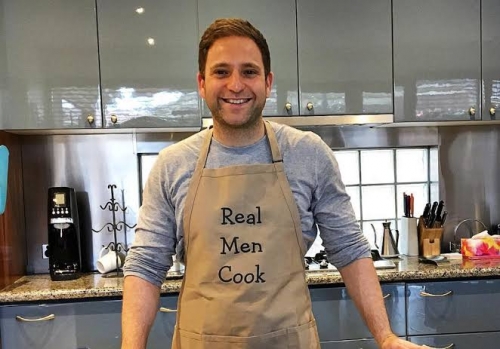News And PoliticsReligion And PrinciplesSocial SciencesAgricultureCommunications And EntertainmentHealth And LifestyleArts And EducationSports And FitnessRelationship And MarriageOthersNigeriapoliticsVehicles And MobilityEngineeringPersonal Care And BeautyScience And TechnologyIT And Computer ScienceFood And Kitchen
profile/5309IMG_20181126_191303.jpg
Ematy1

The Reason Why Most Men Don't Cook
~2.6 mins read
When it comes to "home" cooking, this perception likely came about due to common gender roles over the course of human history. The role of the male would be to leave the home every day to bring food back, whether directly by hunting (as was common with our earliest ancestors) or farming, or indirectly by performing a service or trading a good in exchange for food or something else that can be then traded for food. The role of the female would be to keep the home for the male and the children to live comfortably, which included cooking the meals.
Of course, it's not like men didn't do any cooking at all. The word "cook" may sometimes be more associated with females, but words like "grill" and "barbecue" are more associated with males. This may be due to the first of our ancestors to use fire regularly; as men capture and kill animals for meat, it stands to reason that they would have to cook it right away. After all, these male hunters may have been miles away from home, and carrying that meat home without it becoming spoiled and inedible may not have been plausible. Therefore, those men may have learned how to create fire in order to cook the meat for preservation (not to mention a celebratory meal with their comrades).
While there have been exceptions in every age, only up until recently have these roles been essentially a rule. For that reason, boys would be taught to follow the roles of their fathers in being the "provider" and the girls would be taught to follow the roles of their mothers in being the "care-giver." If a person isn't taught to perform a certain task well, it stands to reason that we should expect that person to perform poorly when asked to do so. Because most human societies expect the females to be the cooks, we wouldn't expect the men to perform as well.
However, the perceptions completely change when we leave the home kitchen and venture into the professional restaurant kitchen. Now, we would except to see men in charge far more often as opposed to women. In fact, many professional kitchens are staffed entirely by men, even those with large brigades; conversely, it is very rare to see fully female kitchen brigades.
Why is this the case when most home cooks are female? Some say that the rigors of professional kitchens demand traits and practices more commonly associated with males (leadership, stricter structures than a home kitchen, more emphasis on perfection than "tender loving care," etc.), maybe because men have historically controlled these kitchens to the point that it has been etched into the societal unconscious as a place for men.
But why male-dominated professional kitchens in the first place? Let's go back to the original point I made; the historical duty of the male was to perform a job to bring food back home. The professional kitchen differs from the home kitchen most greatly in that regard; it is treated as an outside-the-domicile occupation, which is considered the ancient realm of the man. As I already mentioned, it's not as if men were completely barred from doing any cooking, so the first "professional cook" likely had plenty of experience whether as a female home cook or a male hunter who put his kills on the fire. Either way, the occupations eventually evolved to the point where mostly male job-hunters learned the craft of the professional kitchen worker, a trend that, along with the thought of bad male home cooks, is happily getting bucked more day after day.
Advertisement

Link socials
Matches
Loading...
